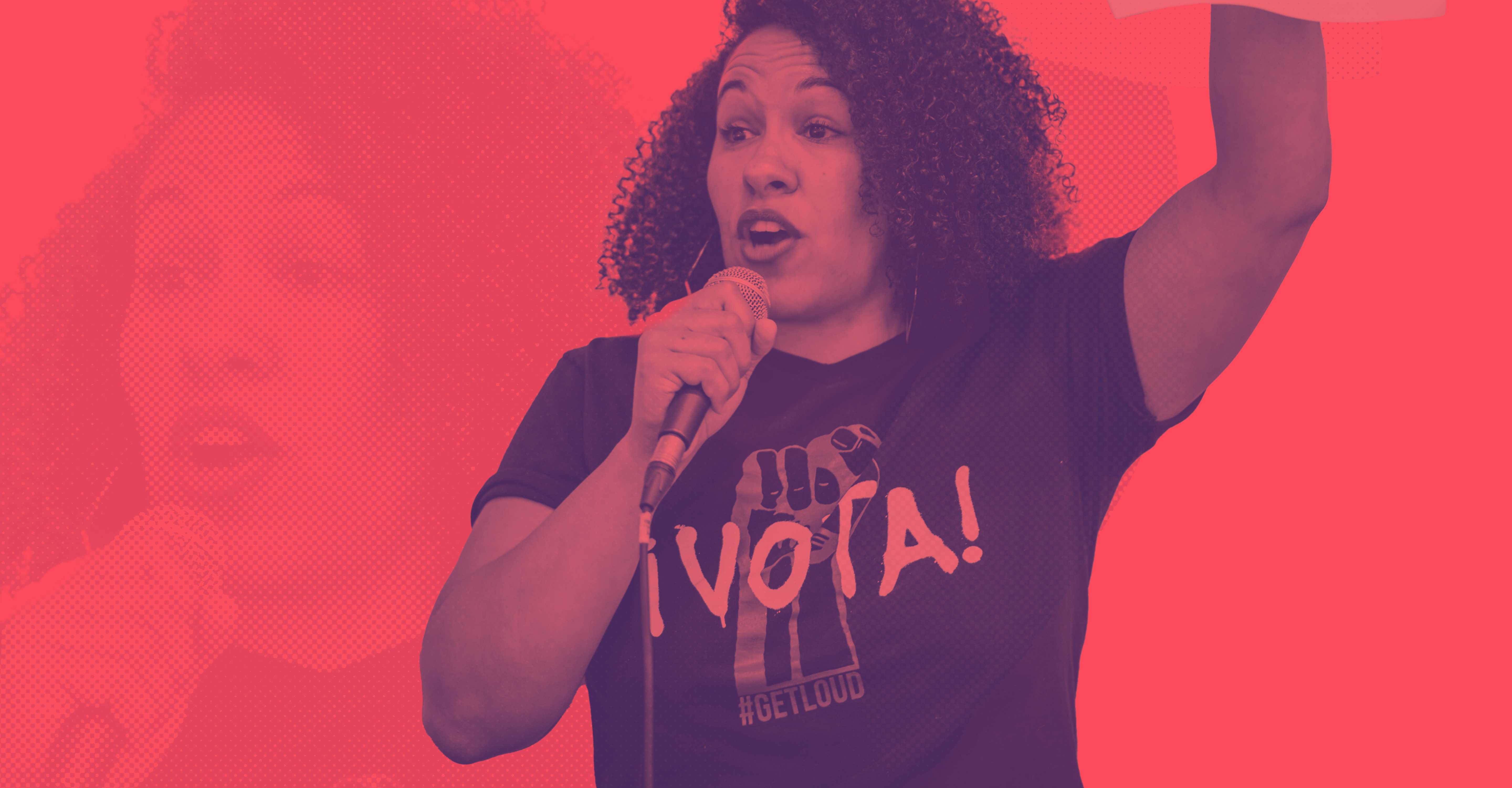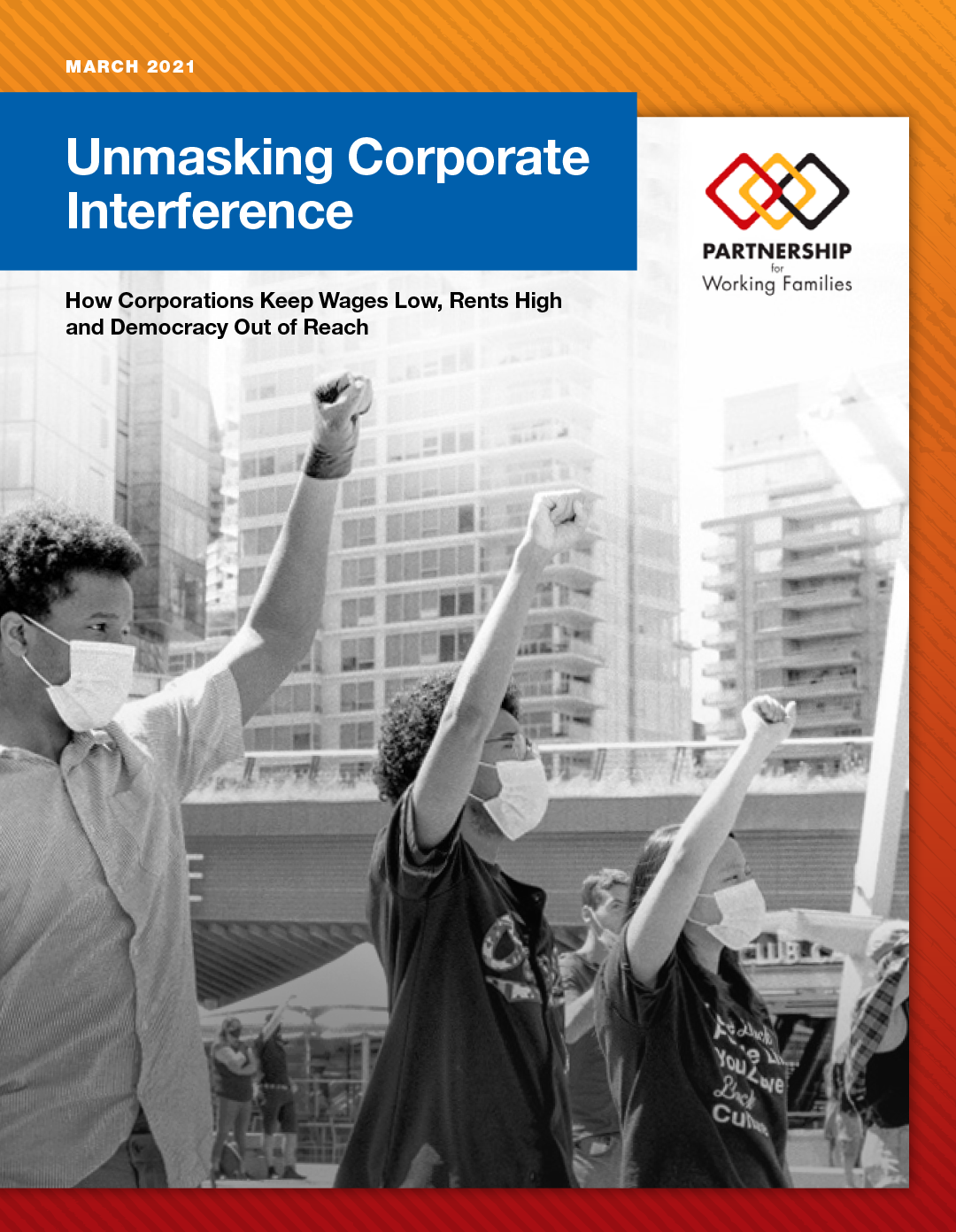In a new report released today, the Partnership for Working Families exposes the ways that state legislators, influenced by their corporate donors, perpetuate racial and gender inequity in housing and wages. The report, “For All of Us, By All of Us: Challenging State Interference to Advance Gender and Racial Justice,” examines case studies in Pennsylvania, Colorado, Tennessee and Louisiana that document the disproportionate consequences of preemption on women and women of color.
Since 2011, there has been a steep increase in states using preemption laws to stop local governments from moving policies that improve wages, guarantee paid sick days, expand tenant protections, and create more affordable housing. Today, 22 states bar cities from enforcing local paid sick time ordinances, 26 states outlaw local minimum wage increases, and 34 states block local rent control laws. State governments frequently overturn municipal decisions and the outcomes of ballot measures, in some cases threatening to withhold funds from cities and punishing local officials who defy them.
“When states block local lawmaking and rob local governments of their power to respond to the needs and concerns of their communities, there are consequences and people get hurt,” said Kim Haddow, director of the Local Solutions Support Center. “As this report makes clear, the people most affected are the people most in need - women and particularly women of color. The misuse of preemption is one more way state legislatures are perpetuating inequity and weakening our democracy.”
“The leadership and activism of women of color has been central to many of the recent progressive victories,” said Lauren Jacobs, Executive Director of the Partnership for Working Families. “This report shows that the recent preemption trend is driven by corporations and overwhelmingly white, male legislators using state power to block a critical path for women and communities of color to create policies that work for all of us.”
This new report looks at overwhelmingly white, male legislatures and the influence of big corporations behind laws in four states responsible for enacting preemption laws that worsen inequality and demonstrates the disproportionate effects of these preemption bills on women and especially women of color, looking closely at Pennsylvania, Colorado, Tennessee and Louisiana. For example:
-
Working people in New Orleans have organized for fair wages for decades. Louisiana – which was the first state to preempt minimum wage increases – has the biggest gender pay gap in the country.
-
Housing and renter organizations in Colorado are in the midst of a fierce battle to overturn the state ban on rent control. Nearly half of Colorado renters are rent-burdened, with women of color suffering the worst of the crisis.
-
A Pittsburgh measure that delivers paid sick days to tens of thousands of women of color who need them most is being challenged in court by business groups who argue the measure is preempted.
-
Tennessee’s ban on inclusionary zoning means that 14,000 new housing units built in Nashville in the last five years did not provide any new affordable homes despite a housing crisis that disproportionately affects people of color.
“It’s no coincidence Louisiana was the first state to pass minimum wage preemption and now we have the largest pay gap in the country,” said Ashley Shelton, executive director of the Power Coalition for Equity and Justice, a Louisiana nonprofit that co-founded the Unleash Local campaign to end preemption of local labor standards. “Women and people of color are the first to pay the price when state legislatures rob local governments of the tools they need to protect their workers and spur regional economic growth and competition.”
The research was conducted by the Partnership for Working Families with support from the Local Solutions Support Center. The Partnership published a related report in 2017 on the effects of minimum wage preemption on communities of color.





